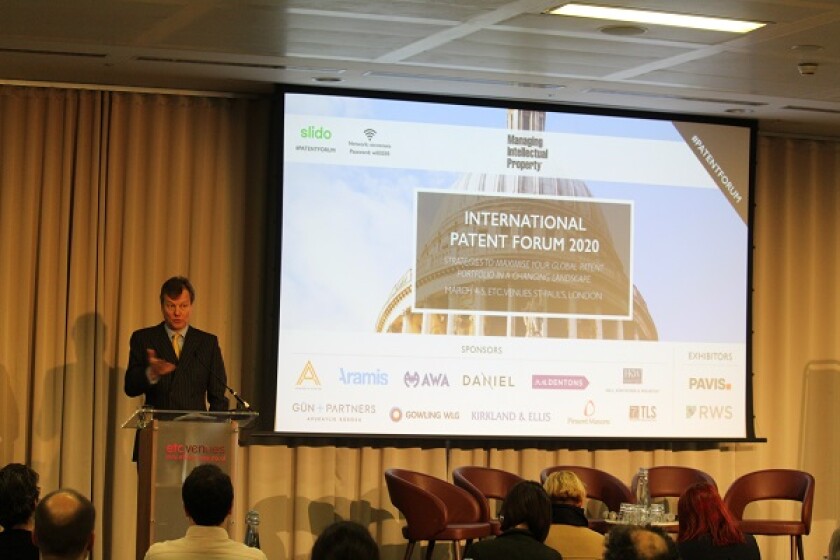England and Wales High Court judge Mr Justice Colin Birss has mulled whether changes to the UK’s patent system could help the country be better equipped to respond to emergencies such as the coronavirus outbreak.
The head of the patents division at the High Court questioned whether patent term extensions for drugs that are only used in an emergency, and a more collaborative approach among medical professionals, could help tackle the problem.
As it stands there is no vaccine for coronavirus (COVID-19). Around 95,000 people have been infected with the virus globally and more than 3,000 of those have died. The majority of cases have come from China’s Wuhan province, but cases are also spreading around the world, including in the UK.
“Why are there no vaccines?” Birss asked, pointing out that the SARS virus of 17 years ago was also a type of coronavirus and that unpredictability should not be a factor in a lack of vaccine development.
He added: “The patent system was fundamentally set up to incentivise innovation and to make money for inventors over a long period of time. A pill to treat this type of illness would not make as much cash, as you would only need to take it once.”
Birss said it would be a challenge to fund research into products where there is a public need but where the return is low over a long period of time.
Perhaps, he suggested, there should be a longer patent term for medicines of this type that can be bought over the counter in an emergency.
“I’m not saying this should happen and I don’t have an action plan with me but I’m asking whether this could be an option,” he said.
Also worth pointing out, said Birss, is that the patent system was not set up to encourage collaboration, but that, over time, this attitude has changed.
“It’s clear this is not true any more,” Birss said, referencing litigation surrounding fair, reasonable and non-discriminatory licensing in the telecoms industry.
He pointed out that in the tech community, group conversations on collaboration and licensing, and how to work out industry standards, do take place.
“Maybe standard-setting should be extended to also allow medical companies to share their ideas in this way? We may see further moves towards sets of patent systems with their own rules,” Birss said.
Birss, speaking at Managing IP’s International Patent Forum in London today, also addressed the shortage of specialist patent judges at the High Court.
As it stands, Birss is the only full-time judge able to hear category 4 and 5 patent cases (the most complex kind).
“I am the sole shopkeeper at the moment but we are managing,” Birss stressed. He pointed out that deputy judges and other IP specialists, including recently appointed Court of Appeal judge Lord Justice Richard Arnold and Intellectual Property Enterprise Court judge Richard Hacon, have both helped share the load.
Birss said he is hopeful that the court – which last year had three full-time patent judges – will be back to full capacity by October this year.











